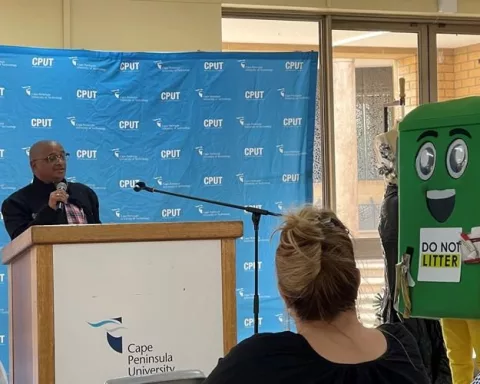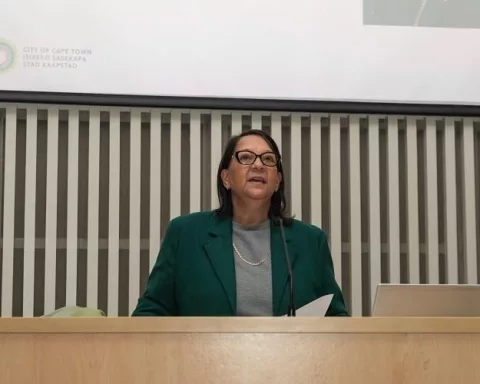Cape Town launched the Emailed Accounts Initiative in 2024, encouraging residents and businesses to switch to a more environmentally friendly alternative to paper accounts. The service is cost-effective, efficient and green, with close to 400,000 users already signed up. Benefits include faster account access, reduced printing costs, and the ability to manage accounts digitally from anywhere. The city has made a range of payment options available, and the service can be accessed via e-Services or an SMS request.
What is Cape Town’s Emailed Accounts Initiative?
The Emailed Accounts Initiative is an environmentally conscious alternative to paper accounts launched by the municipality of Cape Town in 2024. It offers a digitized solution for managing city accounts that is effective, budget-friendly, and green. Users can register and sign up for the service through e-Services or by issuing an SMS request. The benefits of the emailed accounts service include the abolition of paper and associated printing expenses, swift account access, and the capability to supervise accounts digitally from anywhere, among others.
An Eco-friendly Endeavor
In the year 2024, the municipality of Cape Town launched a novel initiative that encouraged inhabitants and business proprietors to shift from conventional paper accounts to a more potent and environmentally conscious alternative – the emailed accounts service. This groundbreaking system was not merely an endeavor to contemporize the city’s administration but a calculated strategy aimed towards a sustainable future.
The emailed accounts service, a digitized initiative by the city, presents a bounty of advantages to its users. It was crafted with the user’s comfort as a priority, offering an effective, budget-friendly, and green solution for managing city accounts. Adopting this system is straightforward, only necessitating registration and sign-up via e-Services or by issuing an SMS request.
Gaining Momentum and Benefits
The service has already been well-accepted, with close to 400,000 users making the switch to this paperless method. Nevertheless, the city’s goal is to enhance this figure by emphasizing the perks of emailed accounts. These perks include the abolition of paper and associated printing expenses, swift account access, the capability to supervise accounts digitally at any time from anywhere, and averting late payments caused by postal slowdowns.
City Councillor Siseko Mbandezi, the city’s Mayoral Committee Member for Finance, has remarked that subscribing to the emailed account service results in benefits for all stakeholders. It enhances overall efficiency for residents, curtails costs, and encourages a more environmentally friendly way to manage city accounts.
The emailed account service provides more than just time conservation. It facilitates customers to settle their accounts without delay and minimizes the probability of errors, facilitating better management of payments. The environmental consequence is considerably lessened due to reduced paper trash. Furthermore, the service eliminates unwarranted postal delivery expenditures, providing a cost-effective solution for both the city and its citizens.
Accessibility and Additional Services
The city’s emailed accounts service is easily obtainable. Interested citizens can reach out to the city’s e-Services or send an SMS request to 31223 to register. For any necessary support, an email can be directed to Revenue.Eservices@capetown.gov.za, or the city’s Customer call center can be contacted at 0860 103 089 or contact.us@capetown.gov.za.
The city has also made a range of alternatives available for account payments. These consist of online services at www.Easypay.co.za or www.powertime.co.za, EFT by selecting the city as a bank-listed beneficiary, retail outlets like Checkers, Pick n Pay, Shoprite, Spar, and Woolworths, the city’s online e-services portal, ATM by adding the city as a beneficiary, and even QR code payments.
The city’s e-Services also provide a multitude of other services. Citizens can renew vehicle licenses, submit water/electricity readings, view current account and account history, apply to receive accounts via email, log service requests, and pay municipal accounts online with a debit order payment option. The registration procedure is straightforward and can be accomplished by visiting https://eservices.capetown.gov.za/.
For account payments and queries or motor vehicle license renewals, residents can access the city’s digital booking system at https://bookings.capetown.gov.za. A brief YouTube video tutorial is also accessible for further assistance.
In essence, the innovative emailed accounts service of Cape Town city is a demonstration of its commitment to offering efficient services to its citizens while also aiming to lower environmental impact. This initiative sets a benchmark for other cities to emulate, redefining what it means to be a sustainable, modern city.
1. What is the Emailed Accounts Initiative in Cape Town?
The Emailed Accounts Initiative is a paperless solution for managing city accounts launched by the municipality of Cape Town in 2024. It encourages residents and businesses to switch from conventional paper accounts to a more environmentally-friendly alternative.
2. How can I register for the Emailed Accounts Initiative?
You can register for the Emailed Accounts Initiative through e-Services or by issuing an SMS request to 31223. For further support, you can email Revenue.Eservices@capetown.gov.za or contact the city’s customer call center at 0860 103 089 or contact.us@capetown.gov.za.
3. What are the benefits of the Emailed Accounts Initiative?
The benefits of the Emailed Accounts Initiative include faster account access, reduced printing costs, the ability to manage accounts digitally from anywhere, the elimination of postal delivery expenditures, and a more environmentally-friendly way of managing city accounts.
4. How many users have switched to the Emailed Accounts Initiative?
Close to 400,000 users have already switched to the Emailed Accounts Initiative in Cape Town.
5. What payment options are available for the Emailed Accounts Initiative?
The city of Cape Town has made a range of payment options available, including online services, EFT, retail outlets, the city’s online e-services portal, ATM, and QR code payments.
6. What other services are available through Cape Town’s e-Services?
Cape Town’s e-Services provide a variety of services, including vehicle license renewals, water/electricity readings, service requests, and online account payments with a debit order payment option. The registration procedure is simple and can be completed by visiting https://eservices.capetown.gov.za/.












